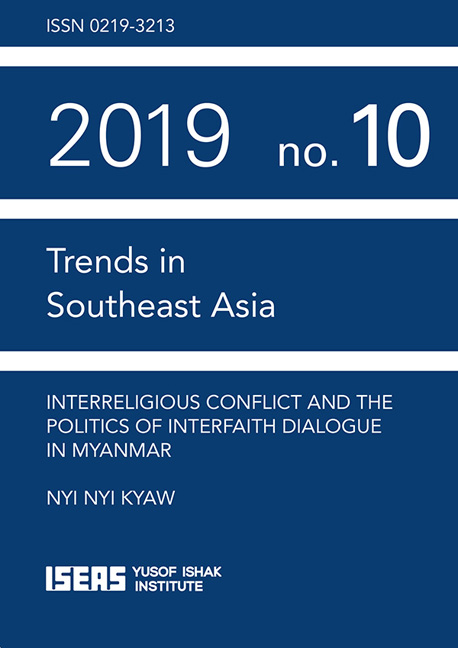Interreligious Conflict and the Politics of Interfaith Dialogue in Myanmar
Published online by Cambridge University Press: 23 January 2020
Summary
INTRODUCTION
The unprecedented series of episodes of violent intercommunal, interreligious or religiously motivated conflict between Buddhist majorities and Muslim minorities in several places in Myanmar from 2012 until 2014 were the bitter fruit of the country's political transition. In the past seven years, “Rohingya” Muslims concentrated in northern Rakhine State in the west of Myanmar faced a citizenship and identity crisis (2012–), a campaign for their wholesale disenfranchisement (2015), and attacks culminating in a refugee exodus (2017–present). Their plight resulted in a Rohingya “insurgency” on the part of the Arakan Rohingya Salvation Army (ARSA), which the National League for Democracy (NLD) government designated as a terrorist organization in August 2017. It was ARSA's attacks on Myanmar security forces in northern Rakhine State in 2016 and 2017 that led to reprisal attacks and the exodus of some 750,000 Rohingyas to Bangladesh. They remain stranded there, their return to Myanmar impossible or extremely difficult.
From 2012 until 2015, the non-Rohingya Muslims who constitute half of the total Myanmar Muslim population also found themselves the focal point for anti-Rohingya Buddhist nationalism and public questioning on Muslim citizens’ loyalty to the state and nation of Myanmar. Although people in Myanmar do not generally problematize non-Rohingya Muslims’ legal citizenship, they view many of them as pro-Islam, pro-Rohingya, or pro-Muslim. The anti-Rohingya and anti-Muslim campaign of the monk-led Buddhist nationalist Ma Ba Tha (Organization for the Protection of Race and Religion) even forced both the then-ruling Union Solidarity and Development Party (USDP) and the then-opposition NLD to decide not to field a single Muslim, let alone Rohingya, candidate in the 2015 general elections.
Although Myanmar often witnessed violent or non-violent interreligious tensions and conflicts in the colonial period and the decades following independence, the country has never before seen such a charged atmosphere of interreligious tensions, misunderstandings, and conflicts over a successive period of several years as in the years since 2012. The problem remains one of the most serious political and social issues that Myanmar faces. The country had a politically closed or repressed society under military rule throughout the 1990s and 2000s.
- Type
- Chapter
- Information
- Publisher: ISEAS–Yusof Ishak InstitutePrint publication year: 2019



